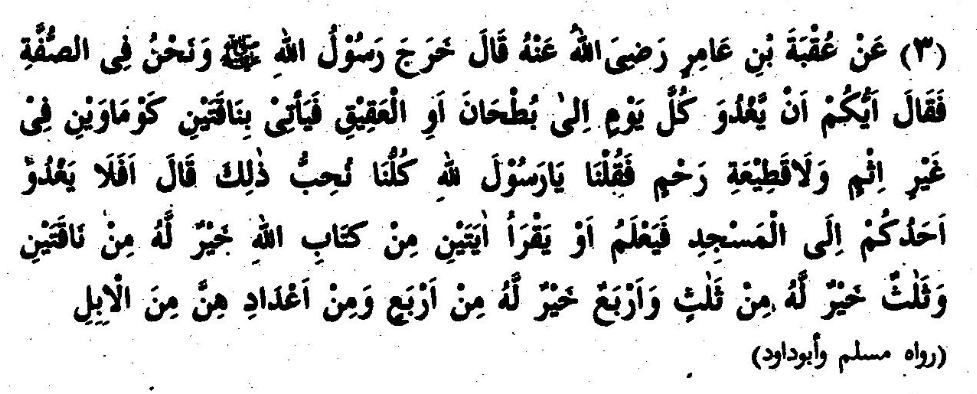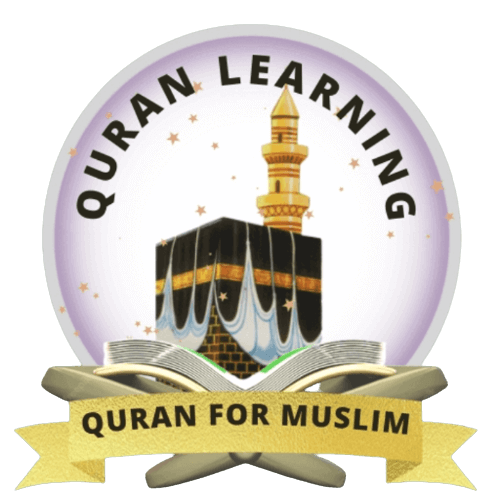
Hadhrat ‘Uqbah ibn Aamir (Radhiyallaho anho) has said: “Rasulullah (Sallallaho alaihe Wa Sallam) came to us while we were sitting on the Suffah and asked if any one of us would like to go to the market of But-haan or Aqeeq and fetch from there two she- ‘ camels of the finest breed without committing any sin or severing a tie of kinship. We replied that every one of us would love to do so. Rasulullah (Sallallaho alaihe wasallam) then said that going to the musjid and reciting or teaching two ayaat of the Qur’an is more pre- curious than two she-camels, three ayaat are most precious than three she-camels, and that similarly re- citing or teaching of four ayaat is better than four she-camels and an equal number of camels.”
“Suffah” is the name of a particular raised platform in the Mosque of the Holy Prophet (Sallallaho alaihe wasal- lam) in Medina. It used to be occupied by the poor Muslim muhajir (Plural of muhajir-emigrant from . Mecca to Medina) who are known as “Ashab-us-Suffah” (Men of Suffah). The number of these men varied from time to time:. ‘Allamah Suyuti (Rahmatullah alaih) has listed one hun- , dred and one name and also written an independent booklet about their names. 20 Virtues of the Holy Qur’an but-hand and Aqeeq were the two marketplaces for camels near Medina. The camel, more particularly a she-camel having a fat hump, was a favorite of the Arabs.
The expression “without sin” is significant. A thing can be acquired without labour either by extortion, through illegal inheritance {by forcefully taking over the property of some relative) or by theft. Rasullullah (Sallallaho alaihe wasallam) thus ruled out all such acquisitions. Acquiring a thing without any sin is certainly preferred by all, but much more valuable is the learning of a few ayaat

Hi! Just wondering- what template did you use for your website? I want to use it on my blog at https://similar.my.id
i use theme and i would ask the exact name of the theme for you and reply you
Assalamualaikum: i use this template kit from envato here is the exact link you can view this
1.envato.market/k0WWmL
Thx